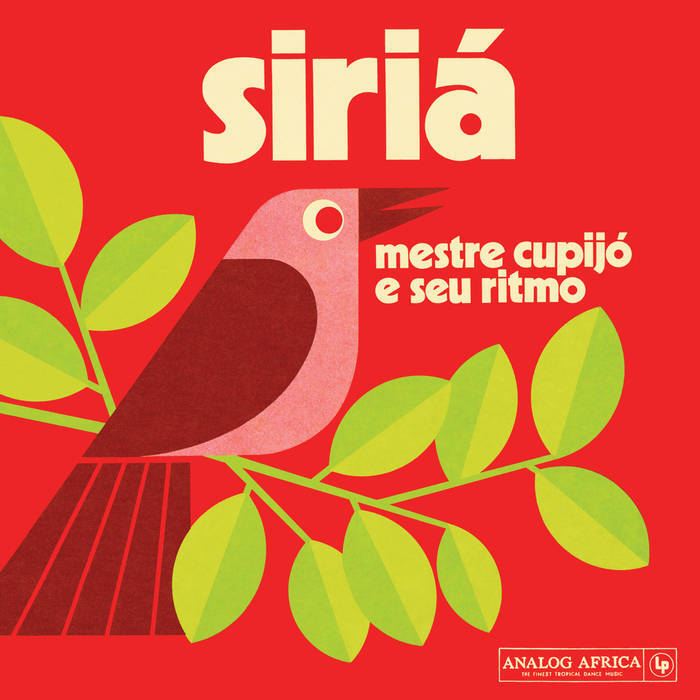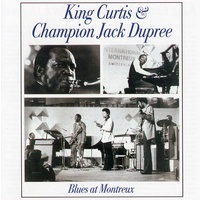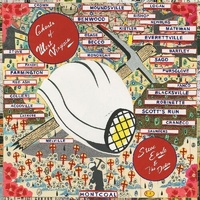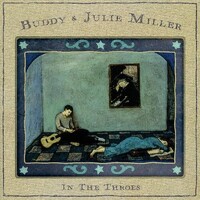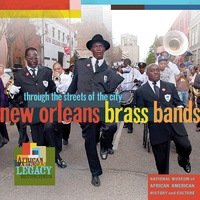Siriá - Mestre Cupijó e Seu Ritmo (The mythical sound of northern Brasil)
2014 CD collection.
Cametá, a historical little Amazonian town on the shores of the river Tocantins, is the birthplace of the scorching music known as 'Siriá'; a cross pollination between the music of the inhabitants of the quilombos, a Brazilian hinterland settlement founded by escaped slaves of African origins, and the indigenous people of the Amazon rainforest. It is a breathing, pulsing, emphatic beat, and the modernised version of this local music, created by Mestre Cupijó, has been igniting street parties and traditional festivals across the state of Pará in Northern Brazil for decades. And at last in 2014, the combustible sound of Siriá will be celebrated internationally as the feverish, tropical sound of the summer!
Foretelling his talent to flow between cultures, Cupijó was named after the local river where he was born into a family of musicians. His father, Mestre Vicente Castro, was also known as Mestre Sicudera, the musical director of one of Brazil´s oldest bands, Eutepe Cametaense. Eutepe Cametaense, formerly directed by Cupijo’s grandfather, was founded in 1874, arguably making them the oldest band in Pará, and possibly in Brazil. They had the heritage and recognition of being the only band that performed at the festivities that signaled the end of slavery in Pará in 1888. Cupijo would later adopt this band and it’s players after his father, as his birthright.
At 12, Cupijó started to play the clarinet. He also became proficient at the piano, mandolin and guitar, although the instrument that came to personify his sound was the alto saxophone.
Waltz, bolero, cha cha cha and an assortment of dance hall music became part of Cupijó's repertoire, but it was Carimbó and Siriá, the music played by the black communities of Pará, that had the strongest impact on the young musician.
To grasp the soul of this music, Cupijó went to its source and lived with the quilombolas (maroon) community of the Amazon. Upon his return, enriched by this life-changing experience, he founded the band 'Jazz Orquestra os Azes do Ritmo' with the goal of reinventing Siriá and modernising Samba de Cacete, Banguê and other folkloric music of the state of Pará. Airwaves from the Caribbean and Latin America had also brought the cumbia sound of the mighty Colombian orchestras, Merengue from the Dominican republic and Cuban music to the Amazon, all of which had an impact on the music of Northern Brazil, Mambo especially! Mestre Cupijó took these influences and mixed them in with the ingredients he had studied in the Quilombos. That fusion - as we are witnessing on this record - had explosive effects.
His fresh new sound became the soundtrack to Cametá's legendary Carnival and soon his troupe were invited to other festivals along the river. Transportation to these concerts was via small boats, where three or four musicians would share a vessel with their instruments tucked between their legs. In those days there were no posters or radio adverts to promote the shows in any way, yet Cupijó's shows became notorious. In an interview one of his band members explains: 'Whenever there was a party - on a Saturday for example - and it was known that Mestre Cupijó would play, the news would spread incredibly fast, just by word of mouth. We didn't understand how that was possible, but it certainly was amazing.'
(4260126061019)
| SKU | 4260126061019 |
| Barcode # | 4260126061019 |
| Brand | Analog Africa |
Be The First To Review This Product!
Help other Birdland Records users shop smarter by writing reviews for products you have purchased.

